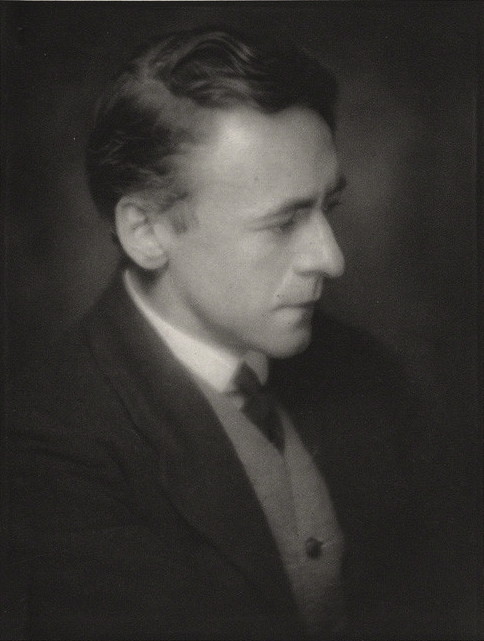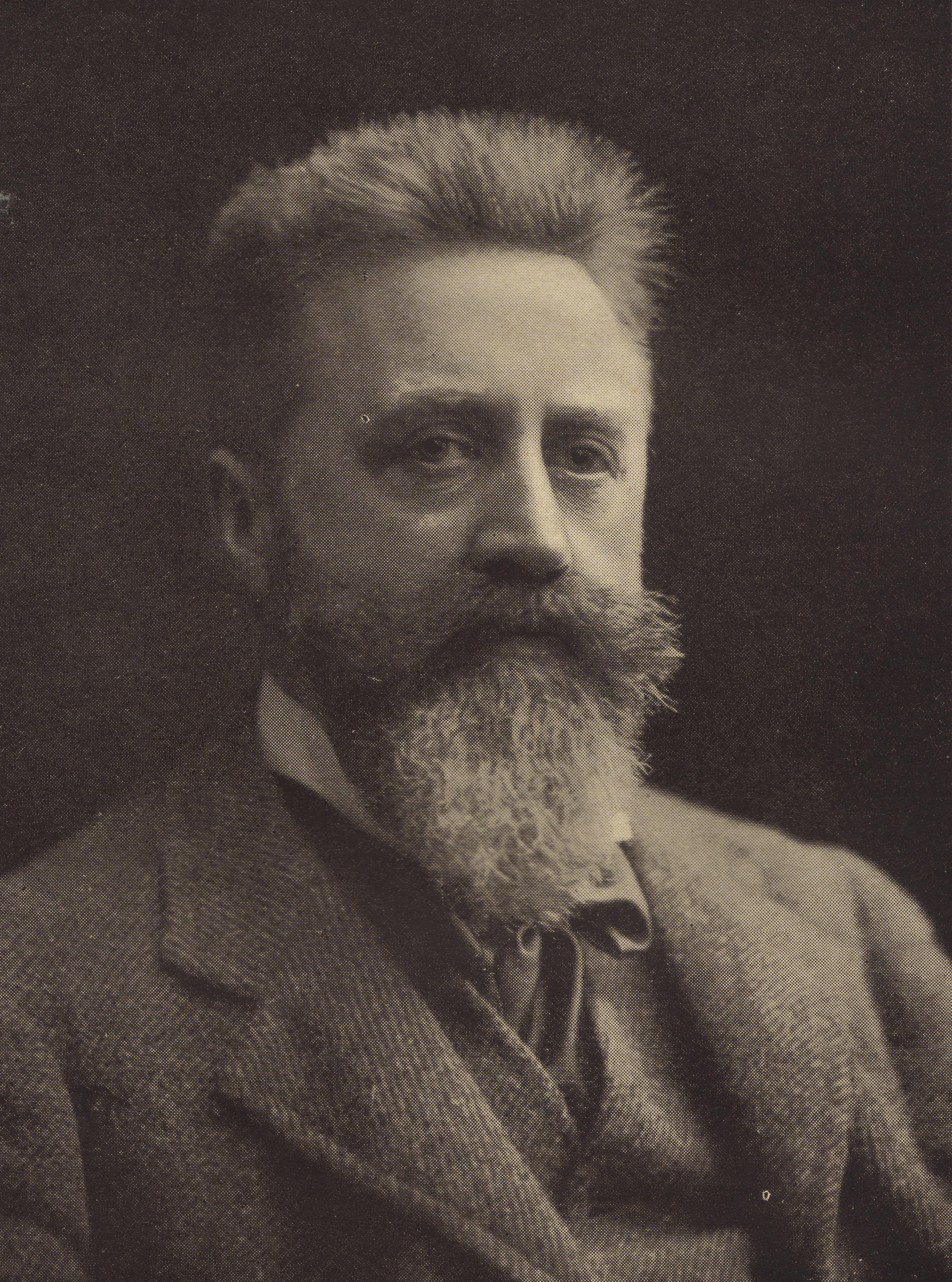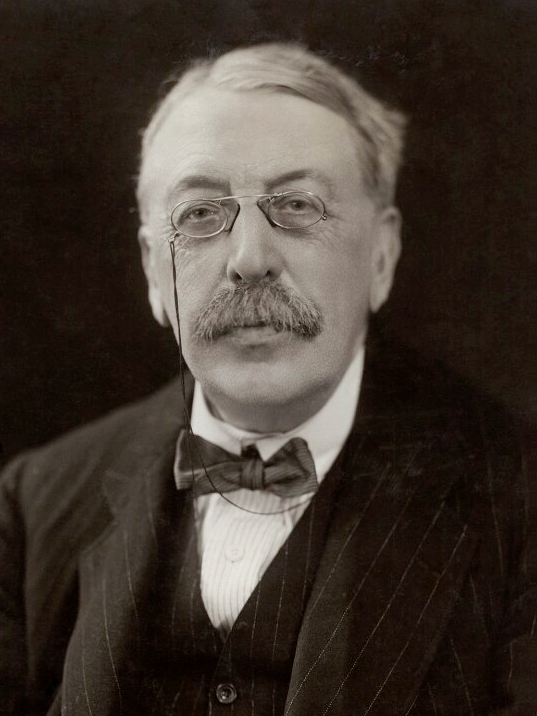|
Part Song
A part song, part-song or partsong is a form of choral music that consists of a song to a secular or non- liturgical sacred text, written or arranged for several vocal parts. Part songs are commonly sung by an SATB choir, but sometimes for an all-male or all-female ensemble. Part songs are intended to be sung a cappella, that is without accompaniment, unless an instrumental accompaniment is particularly specified. In Britain The part song was created in Great Britain, growing out of the madrigal tradition (though initially with more emphasis on homophonic harmony and less on polyphonic part writing) and the 18th century Glee. Paul Hillier describes the Glee as "a uniquely English creation...the convivial music of all-male musical societies". The classic Glee is "essentially a work for unaccompanied men's voices, in not less than three parts...simpler han the madrigalin texture, less sophisticated in design, and generally based on the simplest kind of diatonic harmony". One o ... [...More Info...] [...Related Items...] OR: [Wikipedia] [Google] [Baidu] [Amazon] |
Choral Music
A choir ( ), also known as a chorale or chorus (from Latin ''chorus'', meaning 'a dance in a circle') is a musical ensemble of singers. Choral music, in turn, is the music written specifically for such an ensemble to perform or in other words is the music performed by the ensemble. Choirs may perform music from the classical music repertoire, which spans from the medieval era to the present, or popular music repertoire. Most choirs are led by a conductor, who leads the performances with arm, hand, and facial gestures. The term ''choir'' is very often applied to groups affiliated with a church (whether or not they actually occupy the quire), whereas a ''chorus'' performs in theatres or concert halls, but this distinction is not rigid. Choirs may sing without instruments, or accompanied by a piano, accordion, pipe organ, a small ensemble, or an orchestra. A choir can be a subset of an ensemble; thus one speaks of the "woodwind choir" of an orchestra, or different "choirs" o ... [...More Info...] [...Related Items...] OR: [Wikipedia] [Google] [Baidu] [Amazon] |
Glee Club
A glee club is a musical group or choir group, historically of male voices but also of female or mixed voices, which traditionally specializes in the singing of short songs by trios or quartets. In the late 19th century it was very popular in most schools and was made a tradition to have in American high schools from then on. Glee clubs were named after a form of English part song, called a glee, which they typically sang. The first named Glee Club held its initial meeting in the Newcastle Coffee House in London in 1787. Glee clubs were very popular in Britain from then until the mid-1850s but by then they were gradually being superseded by larger choral societies. By the mid-20th century, proper ''glee'' clubs were no longer common. Testifying to the importance of glee clubs in 19th Century America, Henry Stone, a Union veteran of the American Civil War, recalled that "A glee club came down from Chicago, bringing with them the new song, 'We'll rally 'round the flag, boys' ... [...More Info...] [...Related Items...] OR: [Wikipedia] [Google] [Baidu] [Amazon] |
Gustav Holst
Gustav Theodore Holst (born Gustavus Theodore von Holst; 21 September 1874 – 25 May 1934) was an English composer, arranger and teacher. Best known for his orchestral suite ''The Planets'', he composed many other works across a range of genres, although none achieved comparable success. His distinctive compositional style was the product of many influences, Richard Wagner and Richard Strauss being most crucial early in his development. The subsequent inspiration of the English folk music#Folk revivals 1890–1969, English folksong revival of the early 20th century, and the example of such rising modern composers as Maurice Ravel, led Holst to develop and refine an individual style. There were professional musicians in the previous three generations of Holst's family, and it was clear from his early years that he would follow the same calling. He hoped to become a pianist, but was prevented by neuritis in his right arm. Despite his father's reservations, he pursued a c ... [...More Info...] [...Related Items...] OR: [Wikipedia] [Google] [Baidu] [Amazon] |
Peter Warlock
Philip Arnold Heseltine (30 October 189417 December 1930), known by the pseudonym Peter Warlock, was a British composer and music critic. The Warlock name, which reflects Heseltine's interest in occult practices, was used for all his published musical works. He is best known as a composer of songs and other vocal music; he also achieved notoriety in his lifetime through his unconventional and often scandalous lifestyle. As a schoolboy at Eton College, Heseltine met the British composer Frederick Delius, with whom he formed a close friendship. After a failed student career in Oxford and London, Heseltine turned to musical journalism, while developing interests in folk-song and Elizabethan music. His first serious compositions date from around 1915. Following a period of inactivity, a positive and lasting influence on his work arose from his meeting in 1916 with the Dutch composer Bernard van Dieren; he also gained creative impetus from a year spent in Ireland, studying Celtic ... [...More Info...] [...Related Items...] OR: [Wikipedia] [Google] [Baidu] [Amazon] |
Arnold Bax
Sir Arnold Edward Trevor Bax (8 November 1883 – 3 October 1953) was an English composer, poet, and author. His prolific output includes songs, choral music, chamber pieces, and solo piano works, but he is best known for his orchestral music. In addition to a series of symphonic poems, he wrote seven symphonies and was for a time widely regarded as the leading British symphonist. Bax was born in the London suburb of Streatham to a prosperous family. He was encouraged by his parents to pursue a career in music, and his private income enabled him to follow his own path as a composer without regard for fashion or orthodoxy. Consequently, he came to be regarded in musical circles as an important but isolated figure. While still a student at the Royal Academy of Music Bax became fascinated with Ireland and Celts (modern), Celtic culture, which became a strong influence on his early development. In the years before the First World War he lived in Ireland and became a member of Dubl ... [...More Info...] [...Related Items...] OR: [Wikipedia] [Google] [Baidu] [Amazon] |
Granville Bantock
Sir Granville Ransome Bantock (7 August 186816 October 1946) was a British composer of classical music. Biography Granville Ransome Bantock was born in London. His father was an eminent Scottish surgeon.Hadden, J. Cuthbert, 1913, ''Modern Musicians'', Boston: Le Roy Phillips; London & Edinburgh: T. N. Foulis, pp.42–46 His younger brother was the dramatist and film director Leedham Bantock. Granville Bantock was intended by his parents for the Indian Civil ServiceAnderson, Keith (2001)''Granville Bantock (1868–1946): Old English Suite; Russian Scenes; Hebridean Symphony (sleevenotes)'' Naxos. Retrieved 16 July 2011. but he suffered poor health and initially turned to chemical engineering. At the age of 20, when he began studying composers' manuscripts, at South Kensington Museum Library, he was drawn into the musical world. His first teacher was Gordon Saunders at Trinity College of Music. In 1888, he entered the Royal Academy of Music where he studied harmony and composit ... [...More Info...] [...Related Items...] OR: [Wikipedia] [Google] [Baidu] [Amazon] |
Ralph Vaughan Williams
Ralph Vaughan Williams ( ; 12 October 1872– 26 August 1958) was an English composer. His works include operas, ballets, chamber music, secular and religious vocal pieces and orchestral compositions including nine symphonies, written over sixty years. Strongly influenced by Tudor music and English folk-song, his output marked a decisive break in British music from its German classical music, German-dominated style of the 19th century. Vaughan Williams was born to a well-to-do family with strong moral views and a progressive social outlook. Throughout his life he sought to be of service to his fellow citizens, and believed in making music as available as possible to everybody. He wrote many works for amateur and student performance. He was musically a late developer, not finding his true voice until his late thirties; his studies in 1907–1908 with the French composer Maurice Ravel helped him clarify the textures of his music and free it from Music of Germany, Teutonic inf ... [...More Info...] [...Related Items...] OR: [Wikipedia] [Google] [Baidu] [Amazon] |
Edward Elgar
Sir Edward William Elgar, 1st Baronet, (; 2 June 1857 – 23 February 1934) was an English composer, many of whose works have entered the British and international classical concert repertoire. Among his best-known compositions are orchestral works including the ''Enigma Variations'', the ''Pomp and Circumstance Marches'', concertos for Violin Concerto (Elgar), violin and Cello Concerto (Elgar), cello, and two symphony, symphonies. He also composed choral works, including ''The Dream of Gerontius'', chamber music and songs. He was appointed Master of the King's Musick in 1924. Although Elgar is often regarded as a typically English composer, most of his musical influences were not from England but from continental Europe. He felt himself to be an outsider, not only musically, but socially. In musical circles dominated by academics, he was a self-taught composer; in Protestant Britain, his Roman Catholicism was regarded with suspicion in some quarters; and in the class-consci ... [...More Info...] [...Related Items...] OR: [Wikipedia] [Google] [Baidu] [Amazon] |
Charles Villiers Stanford
Sir Charles Villiers Stanford (30 September 1852 – 29 March 1924) was an Anglo-Irish composer, music teacher, and conductor of the late Romantic music, Romantic era. Born to a well-off and highly musical family in Dublin, Stanford was educated at the University of Cambridge before studying music in University of Music and Theatre Leipzig, Leipzig and Berlin. He was instrumental in raising the status of the Cambridge University Musical Society, attracting international stars to perform with it. While still an undergraduate, Stanford was appointed organist of Trinity College, Cambridge. In 1882, aged 29, he was one of the founding professors of the Royal College of Music, where he taught composition for the rest of his life. From 1887 he was also Professor of Music (Cambridge), Professor of Music at Cambridge. As a teacher, Stanford was sceptical about Modernism (music), modernism, and based his instruction chiefly on classical principles as exemplified in the music of Joha ... [...More Info...] [...Related Items...] OR: [Wikipedia] [Google] [Baidu] [Amazon] |
Hubert Parry
Sir Charles Hubert Hastings Parry, 1st Baronet (27 February 1848 – 7 October 1918), was an English composer, teacher and historian of music. Born in Richmond Hill, Bournemouth, Parry's first major works appeared in 1880. As a composer he is best known for the choral song "And did those feet in ancient time#By Hubert Parry, Jerusalem", his 1902 setting for the coronation anthem "I was glad", the choral and orchestral ode ''Blest Pair of Sirens'', and the hymn tune "Repton", which sets the words "Dear Lord and Father of Mankind". His orchestral works include five symphonies and a set of Symphonic Variations. He also composed the music for ''Ode to Newfoundland'', the Newfoundland and Labrador provincial anthem (and former national anthem). After early attempts to work in insurance at his father's behest, Parry was taken up by George Grove, first as a contributor to Grove's massive ''The New Grove Dictionary of Music and Musicians, Dictionary of Music and Musicians'' in the 1870 ... [...More Info...] [...Related Items...] OR: [Wikipedia] [Google] [Baidu] [Amazon] |
George Alexander Macfarren
Sir George Alexander Macfarren (2 March 181331 October 1887) was an English composer and musicologist. Life George Alexander Macfarren was born in London on 2 March 1813 to George Macfarren, a dancing-master, dramatic author and journalist, who later became the editor of the ''Musical World'', and Elizabeth Macfarren, ''née'' Jackson.Brown (2004). At the age of seven, Macfarren was sent to Dr Nicholas's school in Ealing, where his father was dancing-master; the school numbered among its alumni John Henry Newman and Thomas Henry Huxley.Banister (1891), p. 10. His health was poor, however, and his eyesight weak, so much so that he was given a large-type edition of the Bible and had to use a powerful magnifying-glass for all other reading. He was withdrawn from the school in 1823 to undergo a course of eye treatment. The treatment was unsuccessful, and his eyesight progressively worsened until he became totally blind in 1860. However, his blindness had little effect on his produ ... [...More Info...] [...Related Items...] OR: [Wikipedia] [Google] [Baidu] [Amazon] |
Henry Smart
Henry Thomas Smart (26 October 1813 – 6 July 1879) was an English organist and composer. Biography Smart was born in London, a nephew of the conductor Sir George Smart and son of a music publisher, orchestra director and accomplished violinist (also called Henry Smart). His sister was the artist and composer Harriet Anne Smart. He was educated at Highgate School, and then studied for the law, but soon gave this up for music. In 1831, Smart became organist of Blackburn parish church, where he wrote his first important work, an anthem; then of St Giles-without-Cripplegate; St Luke's, Old Street; and finally of St Pancras New Church, in 1864, which last post he held at the time of his death, less than a month after receiving a government pension of £100 per annum. Smart was also skilled as a mechanic, and designed several organs. He was also invited by William Sterndale Bennett to join the Committee of his Bach Society leading to the first English performance of Bach's S ... [...More Info...] [...Related Items...] OR: [Wikipedia] [Google] [Baidu] [Amazon] |








